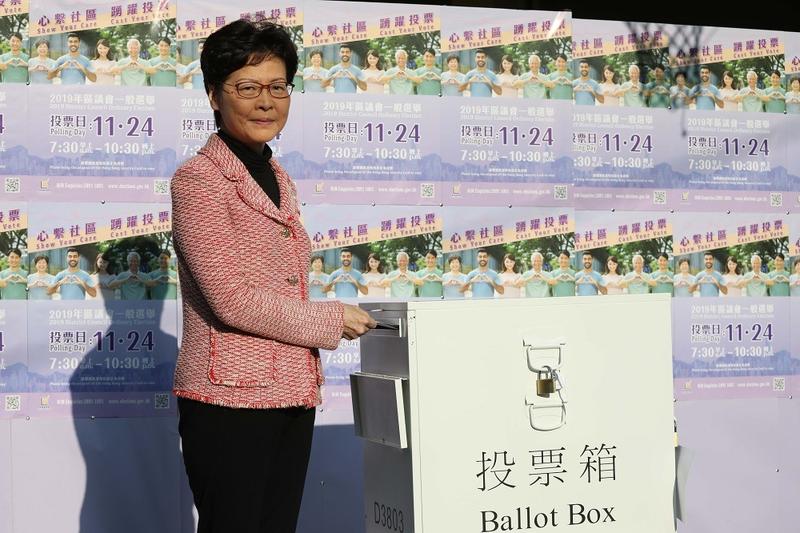HK district elections chance to step back from the brink of abyss: Editorial
chinadaily.com.cn | Updated: 2019-11-24 21:39

Over the past five months or so, radical, violent and criminal practices in Hong Kong have severely threatened people's safety and property, disrupted the rule of law and social order, and undermined the city's prosperity and stability. Were it not for that and the attendant media brouhaha, the local council elections in the Hong Kong Special Administrative Region on Sunday would not have grabbed so much attention.
But because of the unrest since June, although the election was mainly about community concerns in the 18 districts of the SAR — with 452 district councilors to be elected from among 1,090 candidates by 4.13 million registered voters — it has assumed greater significance .
It was the first popular election in the city since the anti-government chaos erupted. The relative tranquility the city enjoyed since several days before the election suggests all stakeholders regarded it as an opportunity to air their views.
That the election saw both a record turnout and a record number of candidates demonstrated the hope of Hong Kong residents that the chaos will not continue as it is harming people's well-being and the image of the city as a safe place to do business or to visit.
Under the framework of the SAR's Basic Law, the district council elections are designed to ensure political inclusiveness in grassroots governance, giving democracy full play in serving the people. No matter what stance the voters and candidates take, they have reached a tacit consent that the elections should proceed.
Indeed this time, voters, the contending parties, as well as the SAR government have viewed the district council elections as an opportunity to pursue their objectives.
Thanks to joint efforts led by the SAR government, the elections were able to take place. And Chief Executive Carrie Lam Cheng Yuet-ngor, after casting her ballot in the election, vowed to further strengthen cooperation with the district councils and their members, which she called "important partners of the SAR government", to better address residents' practical concerns and increase their sense of gain.
If that can be translated into effective policies, the election will hopefully have served as an opportunity to return the city to normal.
The record turnout has sent the message that however violent the rioters are, ordinary residents are concerned about their own well-being. They hope there will be an end to the violence and disruption as soon as possible, and want practical down-to-earth measures to improve their living standards.
Rather than by slogans and mindless violence, their concerns can only be addressed within the framework of the SAR's political system and without the intervention of foreign powers.
By trying to bolster anti-China, extremist and violent radicals, foreign forces are trying to damage Hong Kong's prosperity and stability so that they can contain China's peaceful rise.
They will not get their way. What they've done will only make Chinese people united in their efforts to guarantee a prosperous future for Hong Kong.
























